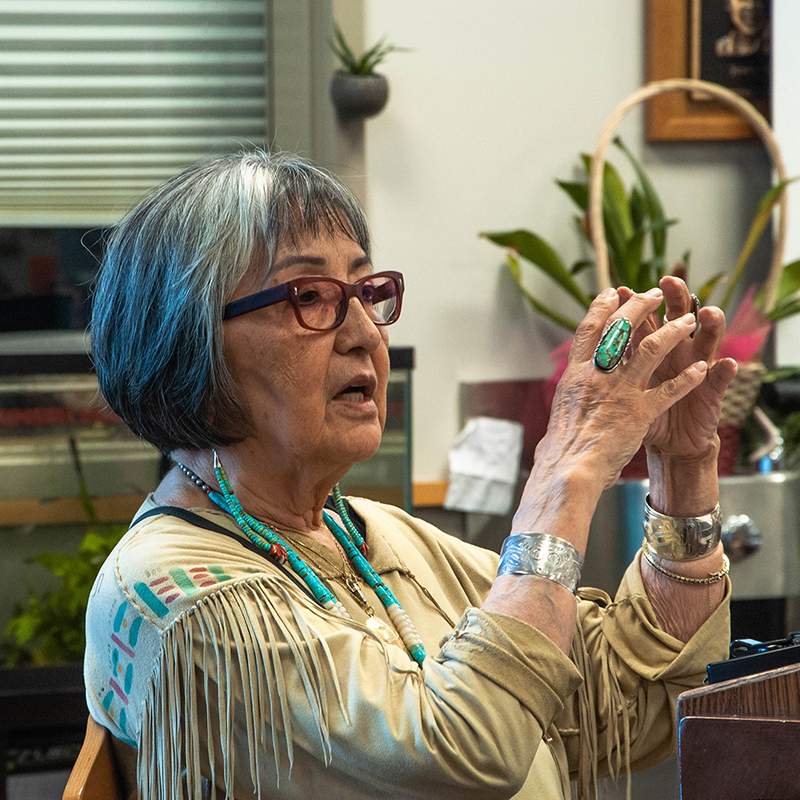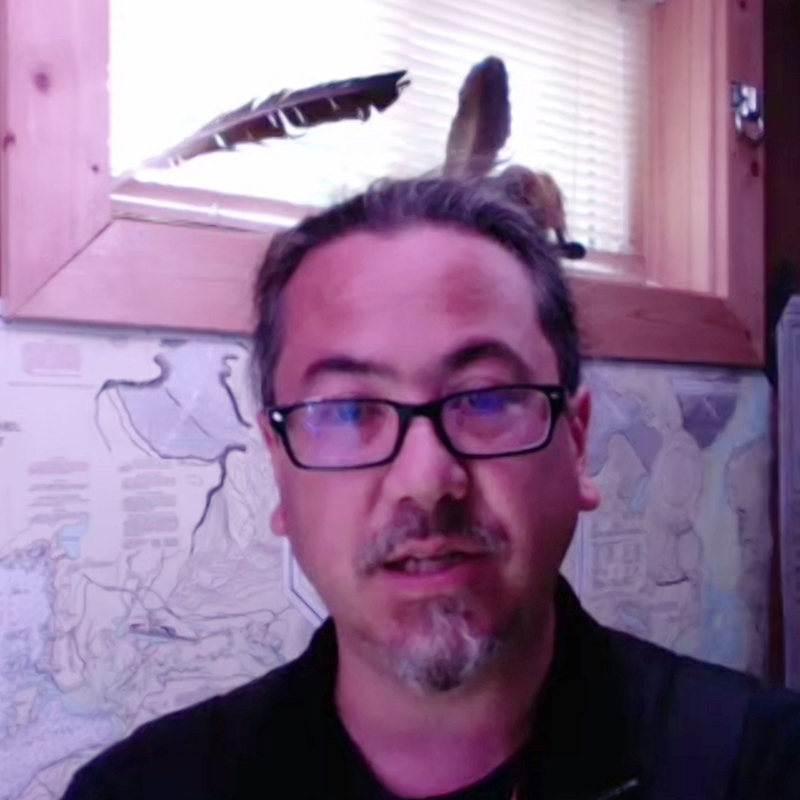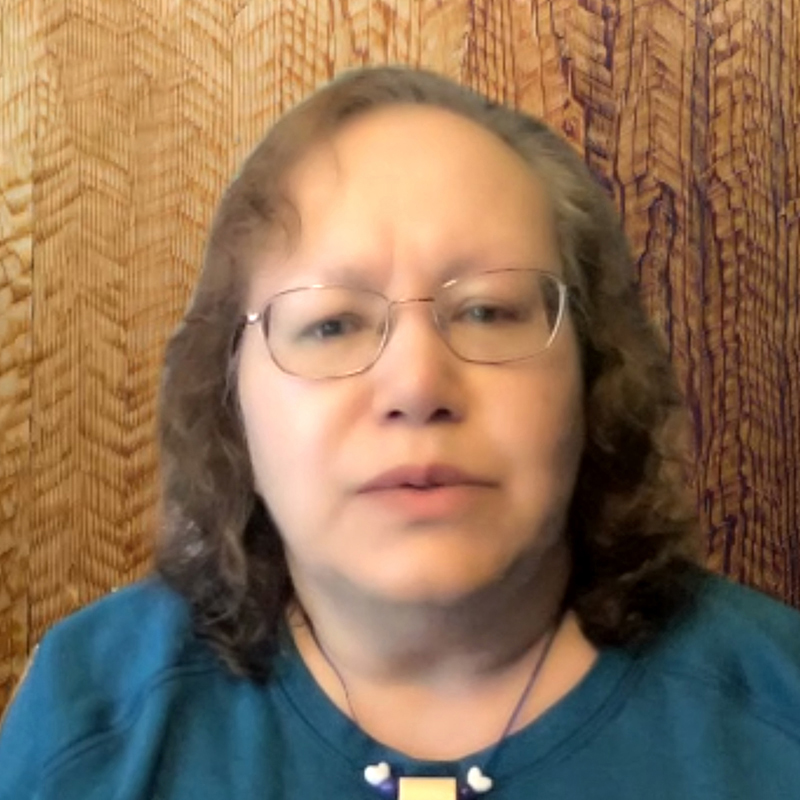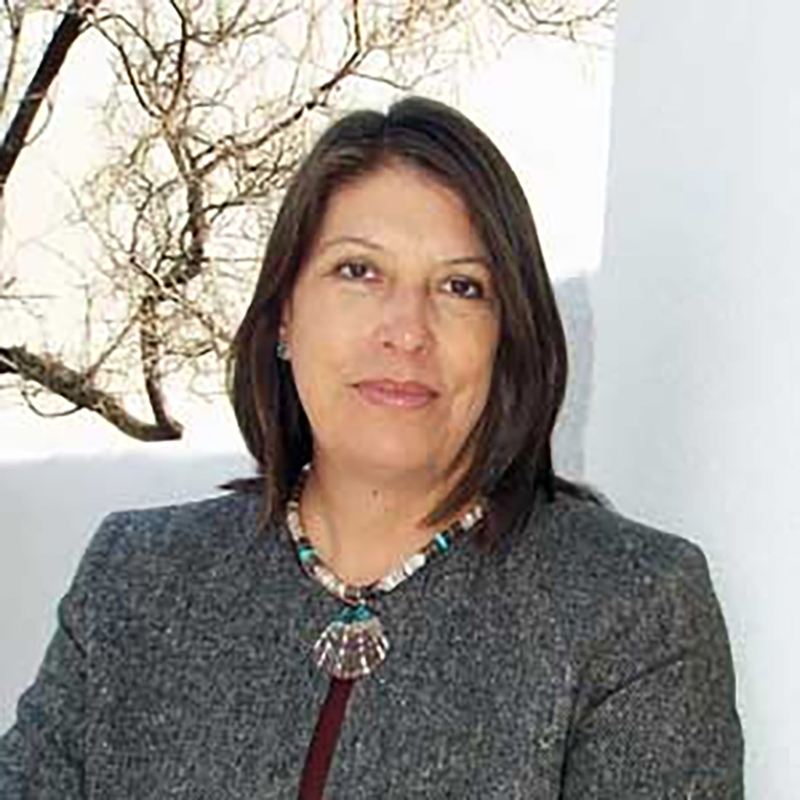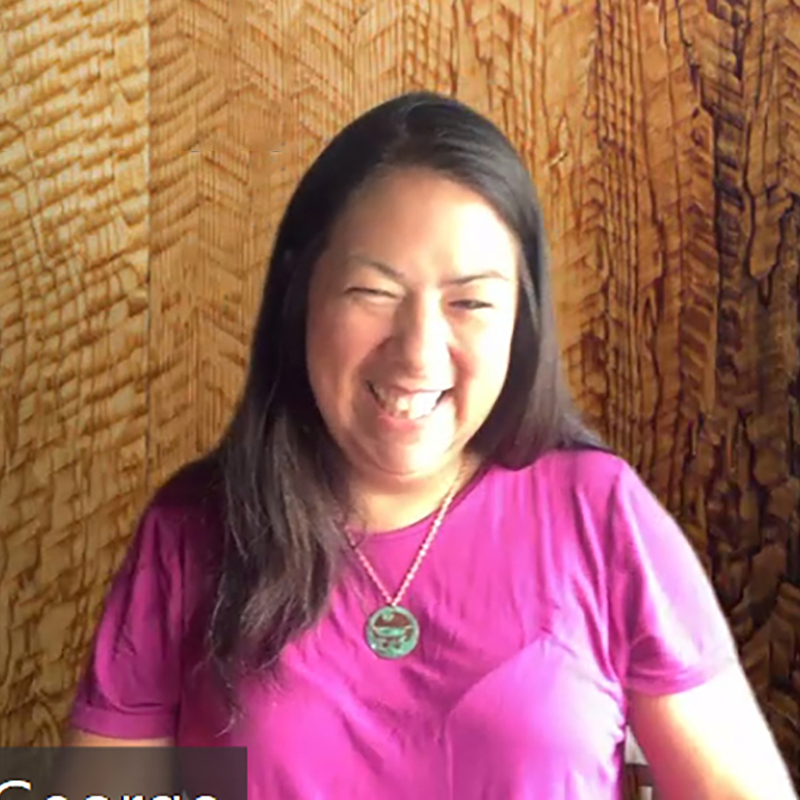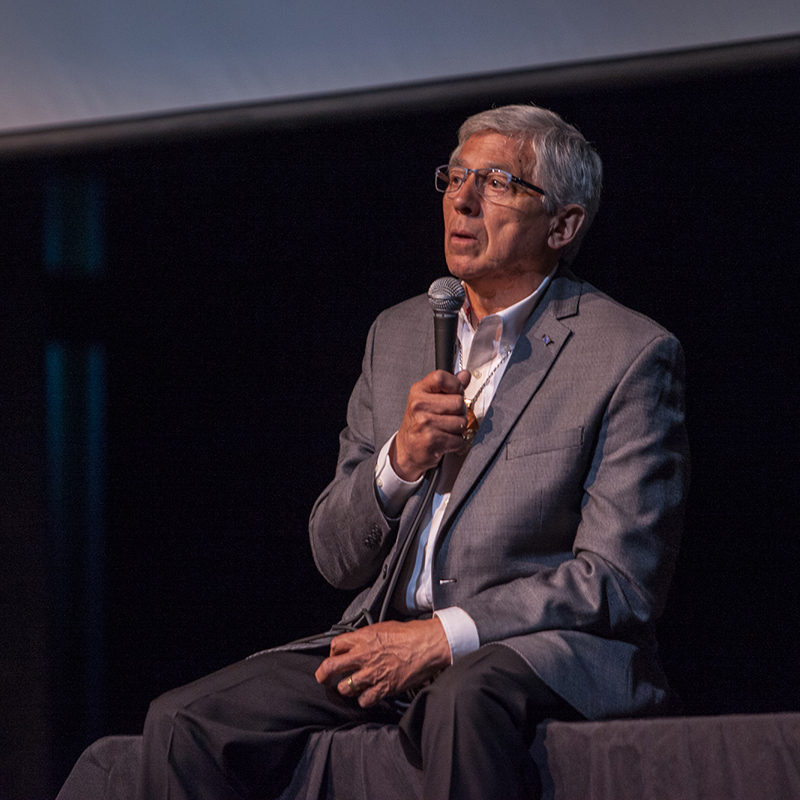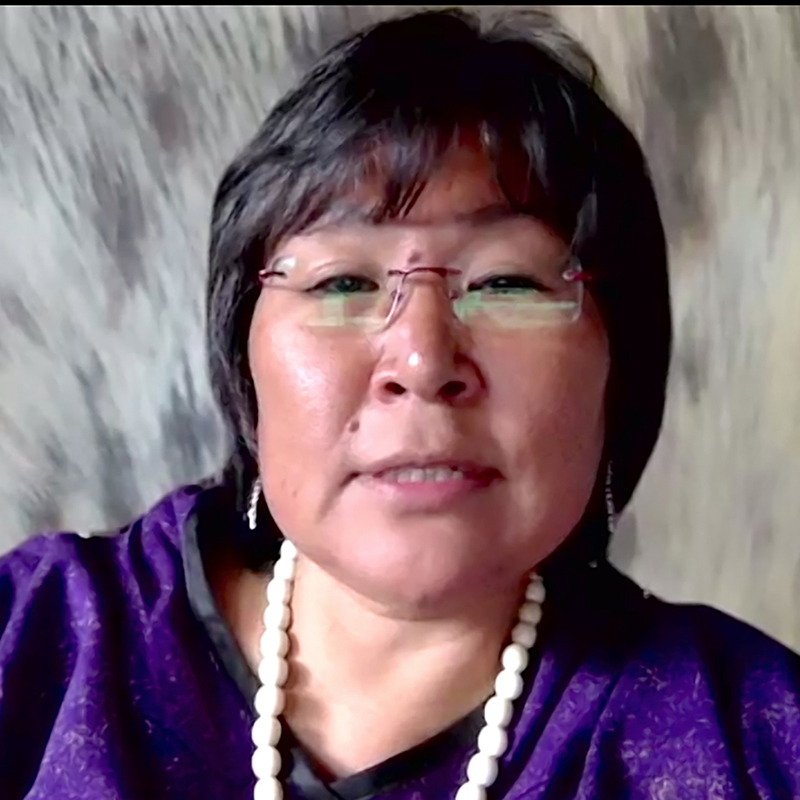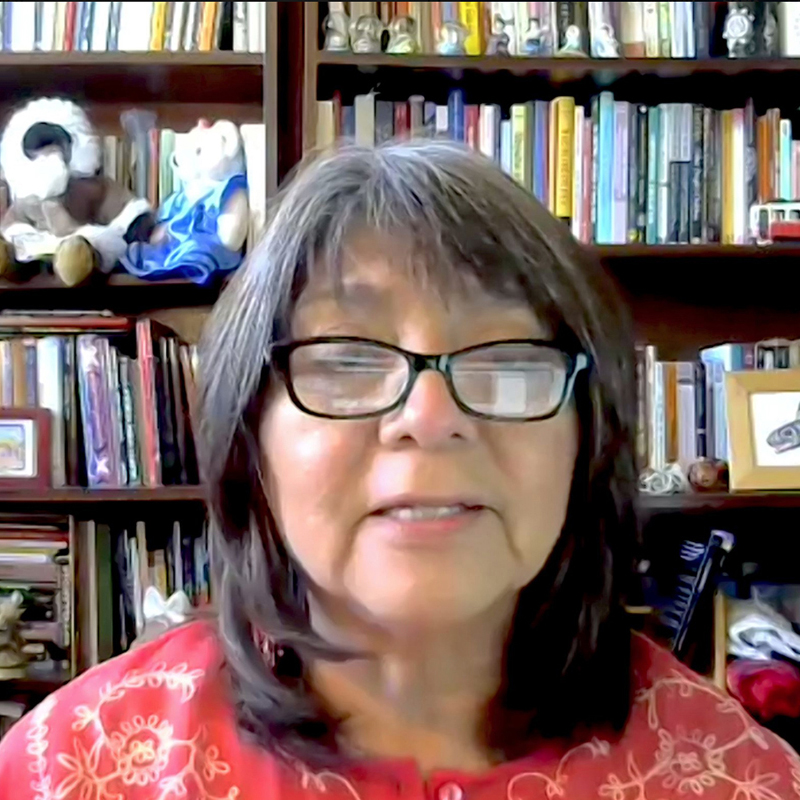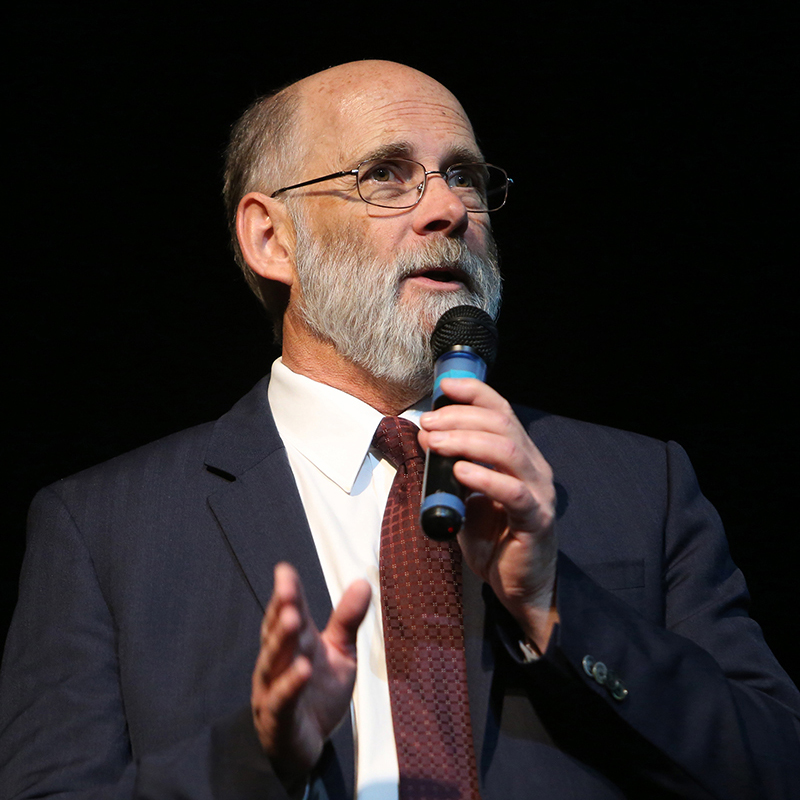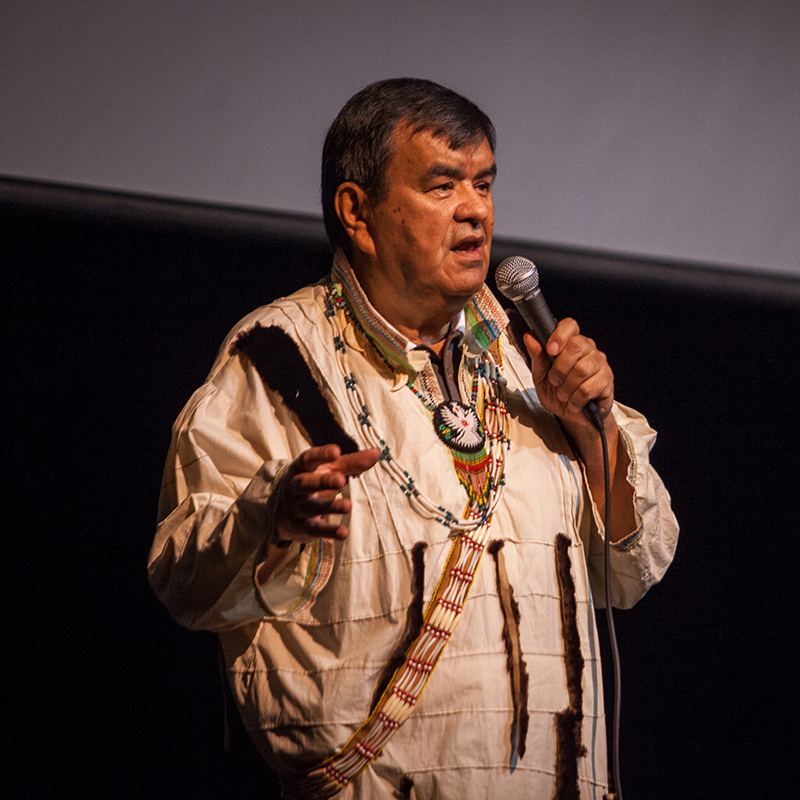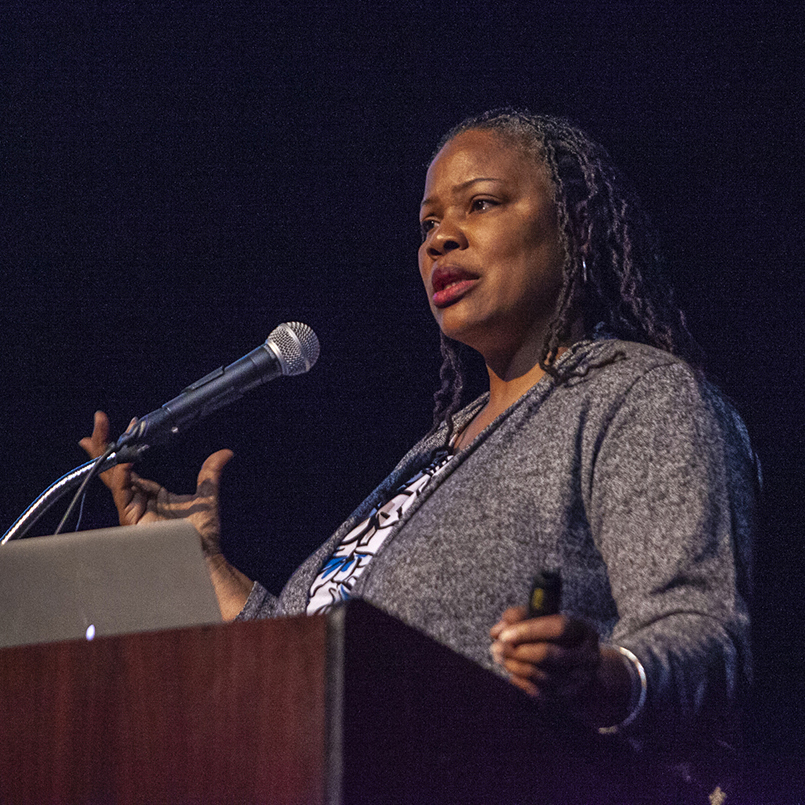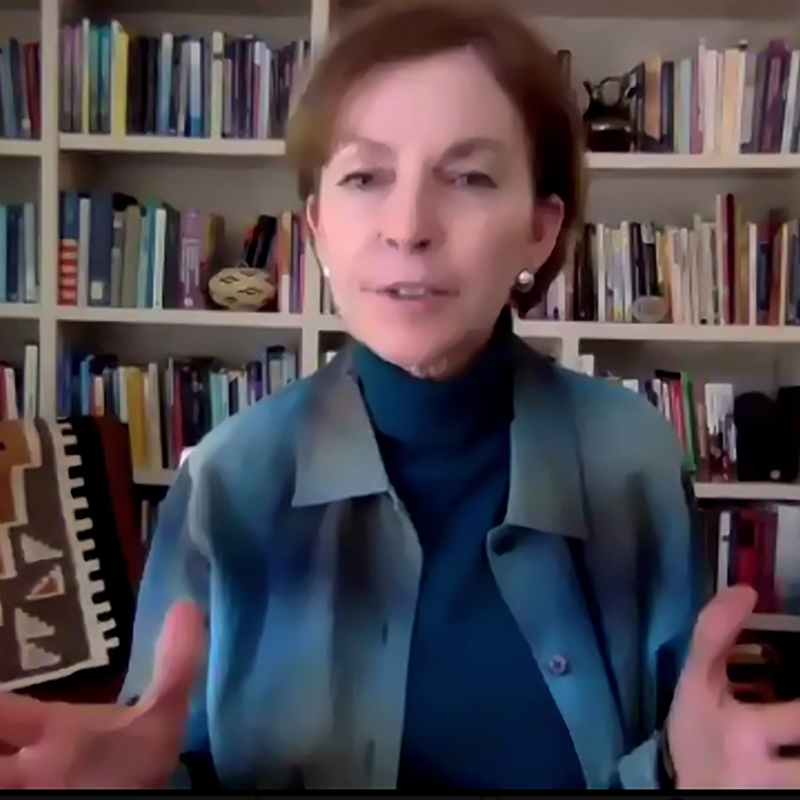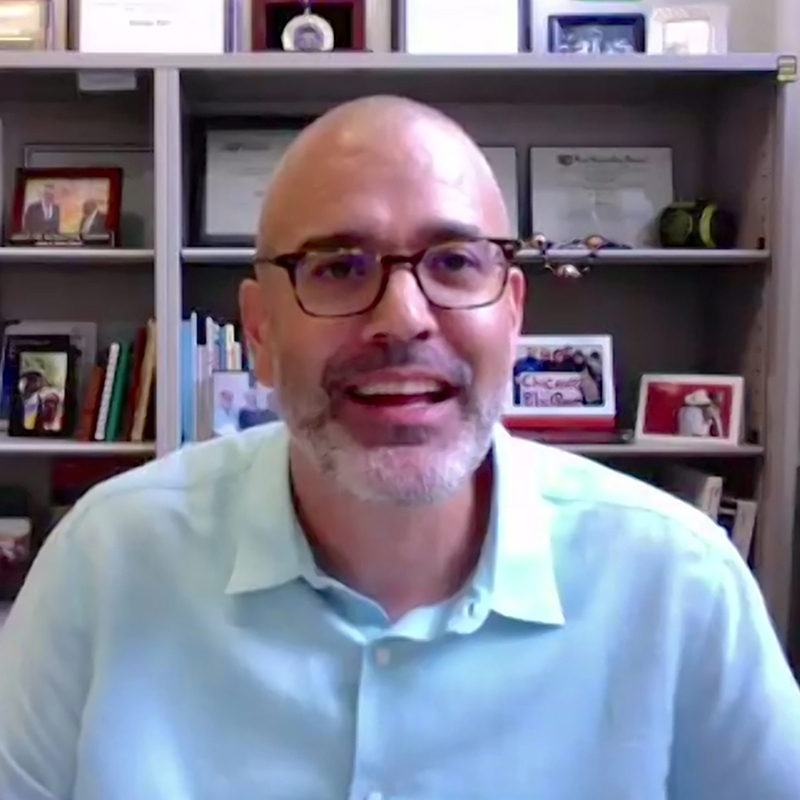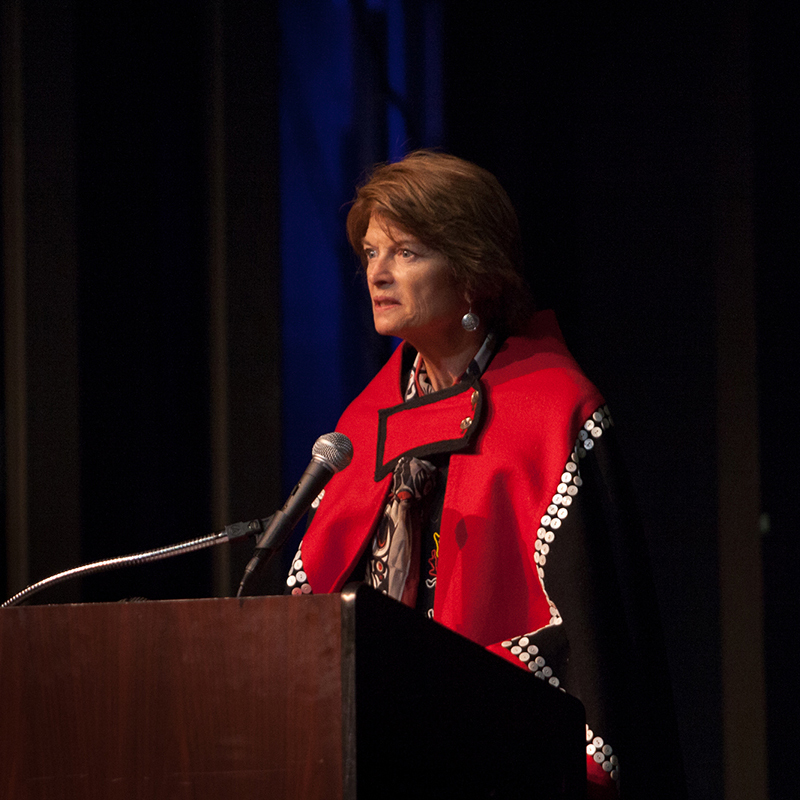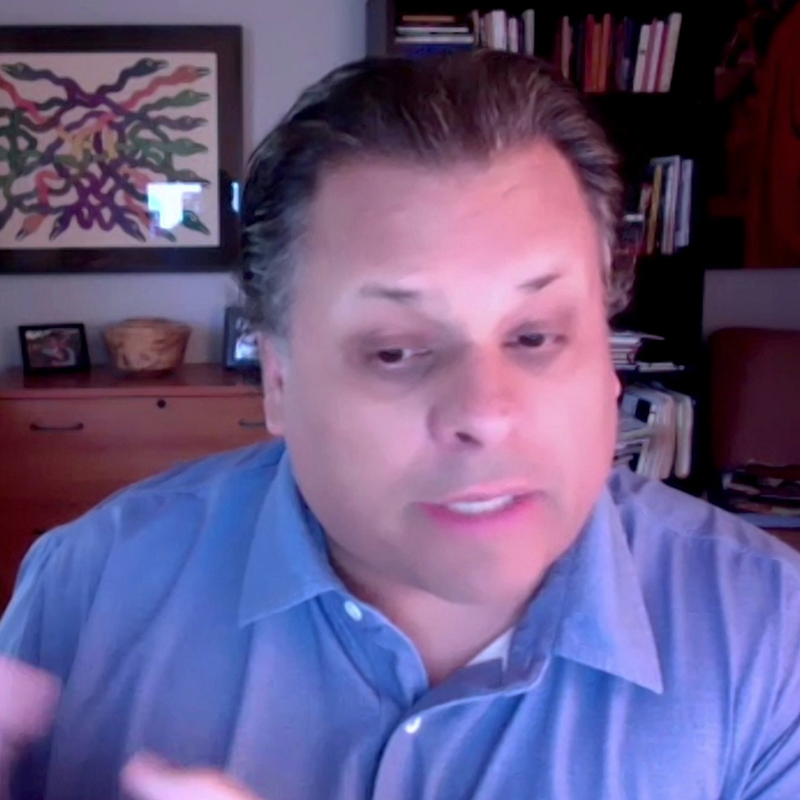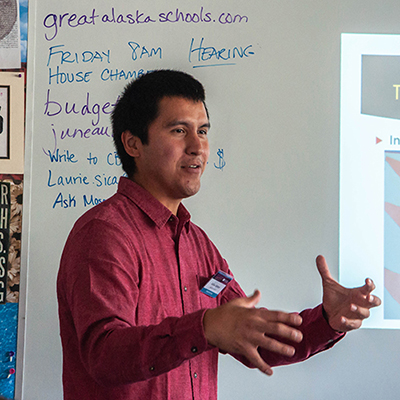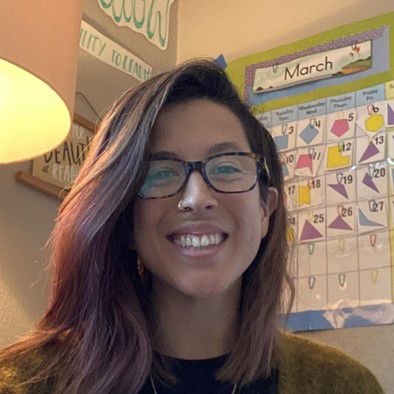Previous Keynotes and Featured Speakers
You educators are key to our mission – you are key to helping us ensure our culture will survive.Rosita Ḵaaháni Worl, Sealaska Heritage president, 2017 welcome
Culturally responsive education is not about successful assimilation. The whole system is poised to be retooled, re-geared, and transformed by embracing thousands of years of knowledge that all of you are inheriting by working in this very awesome place that has a lot of Indigenous knowledge just waiting to be tapped into. I want to thank all of you from the bottom of my heart for seeking that knowledge, that wisdom, and that connection. Because that is the path forward for the whole planet - to embrace the diversity of thought but also the wisdom that goes with an understanding of placeKaaxúgu Joe Nelson, Chair of Sealaska Board of Directors, opening comments, 2021
Nancy Douglas, opening comments, 2021The voices of our Elders is what grounds me every day and in the work that we do to be culturally responsive. It is those voices of the Elders that I hear every day in my work, when I’m thinking about curriculum, or thinking about creating songs, or thinking about what we need to be doing next.
Dr. Tiffany Lee, keynote speaker, 2021I have a dream, that I don’t think is too far-fetched, where all educators understand and teach Indigenous histories, especially the ones from the land they are on.
Shgen George, opening comments, 2021These are the lands of our ancestors where our children have been raised for generations, learning from our grandparents’ knowledge. We’ve designed this conference to embrace that knowledge and to apply it to our lives both inside and outside of the classroom.
Alaska Lt. Gov. Byron Mallott, 2017 addressIn this room there is a step -- a meaningful one, a palpable one, a demonstrative one -- toward the Alaska 50 years from now that I dream about when I dream about my grandchildren. The kind of interaction that’s taking place here, your commitment to take days out of your lives to learn, to share, to embrace the notion that’s alive in the pages of this (conference) booklet, gives me incredible hope for the future of my grandchildren.
Panigkaq Agatha John-Shields Ph.D., 2020 keynoteWhen thinking about education, what's good for Indigenous people is good for all people. It's now my responsibility (and yours) to pass down the knowledge and traditions to my family and students. People that lose their culture and language -- it is like being gutted. It is not an Indigenous thing, it is a humanity thing.
Sheilah Nicholas, 2020 keynoteIf we don’t continue with the traditions and practices that our ancestors have made for us, we will be Hopi (Native American) in name only. The change that I saw, one child at a time, was too slow for me, so I decided to reach out to other teachers that could help make a change for their whole class.
Dr. Christopher Blodgett, Moving From Loss to Resilience, 2017 keynoteNone of us get to be bystanders in this conversation. This takes every one of us.
Ilarion Larry Merculieff, The Real Human Being: My own story, 2017 keynoteI was literally raised by the whole village. I would walk out every day and be affirmed by every adult I ran into…. I grew up not asking any questions. I watched, listened and learned.
Zaretta Hammond, Culturally Responsive Teaching: Using neuroscience and ancestral wisdom to support student learning, 2017 keynoteCulture is the software to the brain’s hardware. Everybody’s brain has actually been programmed.
Teresa McCarty, 2020 keynoteThere is a spiritual component [from learning a heritage language] that does not get measured on tests and assessments. People that have been through a genocide or colonization don’t want that for their kids.
Django Paris, 2020 keynote(Begin) thinking of your syllabus as an act of resistance; something to be posted in the streets, handed out at rallies, exclaiming: ‘We are here, we love ourselves, we understand what you have done, and we are building the world we need, one lesson, one project, one classroom at time.’
US Senator Lisa Murkowski, 2017 addressYou’re seeking to not only (improve) education, but to enhance young lives through an appreciation of ancient cultures and traditions. How can that not make each of us richer?
Bryan Brayboy, 2020 keynoteLearning is an active event, not a passive one. Often we hear, ‘Is this kid or family ready for school?’ We should be asking, ‘Is this school ready for this family and student?
Breakouts
Joshua Jackson quoting Dr Walter Soboleff, 2018 breakout sessionWhen our children know who they are, they don’t hurt themselves.
Maureen Hogan, 2020 breakout session: Am I a Racist?Racism is already here, it is mainstream, it’s ordinary and not unusual. This makes it difficult to deconstruct it and to combat it. Examine our own privileges. What gives us (you) power or privilege? Learn how to critique mainstream education policy and curriculum. As long as we are alive, we have to be hopeful. We are all racist to some degree.
Conference Attendees
Jennifer Walker, MRCS librarian, 2020 conference attendeeAMAZING conference!! That was literally the best conference I've ever attended. It filled my heart, energized me, and helped me calm down.
conference attendee, 2021This conference was nothing short of profound and it's difficult to put into words the hope and gratitude I feel. I was moved to tears so many times throughout this conference but I was also invigorated by the connection of others, the wisdom shared, the knowledge to move forward with an improved outlook on exactly how to instill change.
conference attendee, 2021This is the best virtual conference that I have ever attended. Thank you for including discussions in every single session. Your modeling of community, making connections, and culturally based work is outstanding.
Community wellness, connections, and learning from our students’ grandparents and traditional cultures and interests are the keys to real success in the indigenized education that we dream of for the future. I loved hearing that in many ways yesterday.conference attendee, 2021
conference attendee, 2021I'm so impressed on the organization and thoughtfulness of this conference.
conference attendee, 2021I learned so much. My heart and spirit feel so full and I am so grateful for the opportunity to participate.
conference attendee, 2021It was wonderful! The vibe and the atmosphere were beautiful and each presenter drew me in to wanting to hear more. I wish more teachers within the whole state of Alaska were drawn to this - this is the kind of conference our teachers need to be in.
conference attendee, 2021I am so blown away; I feel so connected and motivated.
conference attendee, 2021I feel so full of gratitude to have been a part of this conference today. I learned so much and the rich connection and community shared was so nurturing.
conference attendee, 2021This conference was not just educational but I felt it to be another step in the process of healing.
Thru the Cultural Lens
Tristen Berkey, elementary school counselorI learned more about the history and culture than I learned my whole life living here in Southeast Alaska while taking the Thru the Cultural Lens SHI class for educators.
Marnita CoenraadI thought I knew a lot about Juneau and Southeast Alaska and I learned so much more from different perspectives that I didn’t know how to access on my own. I was apprehensive to create culturally responsive lessons on my own and I wanted to do it ‘right’. This class helped me feel comfortable creating a unit.
Lorrie HeagyI took the (Thru the Cultural Lens) course last year and can attest to the quality of instruction, depth of cultural knowledge, and access to community culture-bearers. You create lesson plans for use in your classroom, so you come away with resources you can immediately apply. Thru the Cultural Lens has been one of the most impactful professional development opportunities I have had. I highly recommend enrolling!

